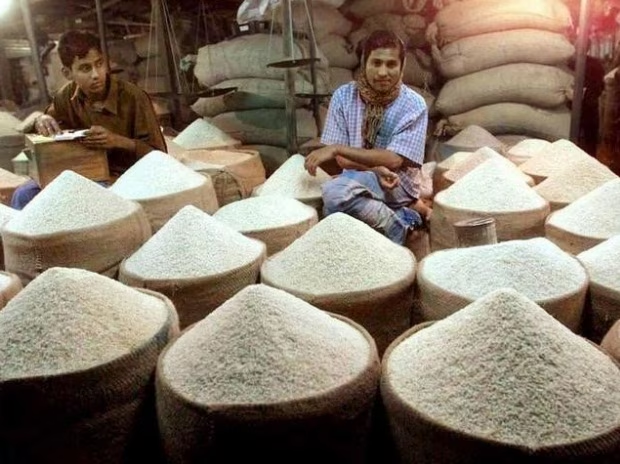
IMF will ‘encourage’ India to reconsider ban on rice export fearing global crisis
text_fieldsNew Delhi: India has recent banned the export of certain varieties of rice in an attempt to avoid a food crisis back home from looming poor harvest.
Now the International Monetary Fund has said it will "encourage" India to remove the restrictions, saying the move will have an impact on global inflation.
The Indian government on July 20 had banned the export of non-basmati white rice to boost domestic supply and keep retail prices under check during the upcoming festive season. This type of rice constitutes about 25 per cent of total rice exported from the country.
There would be no change in export policy of par-boiled non-basmati rice and basmati rice, which forms the bulk of exports, the food ministry had said in a statement.
In the current environment, these types of restrictions are likely to exacerbate volatility on food prices in the rest of the world. They can also lead to retaliatory measures, Pierre-Olivier Gourinchas, Chief Economist, International Monetary Fund (IMF), told a press conference here.
"So, they are certainly something that we would encourage the removal of these types of export restrictions, because they can be harmful globally," he said in response to a question.
The total exports of non-basmati white rice from India was $4.2 million in 2022-23 as against USD 2.62 million in the preceding year. Major destinations of India's non-basmati white rice exports include the US, Thailand, Italy, Spain and Sri Lanka.
In order to ensure adequate availability of non-basmati white rice in the domestic market and to allay the rise in local prices, the government has amended the export policy from 'Free with export duty of 20%' to 'Prohibited' with immediate effect. The IMF in its latest economic update released here on Tuesday projected India's growth rate to be 6.1 per cent for fiscal year 2024, which is slightly up from 5.9 per cent estimated projection for the same period in April.
"India remains an economy that is growing quite strongly. I mean, it's coming down from really a very strong year in 2022, at 7.2 per cent. That was also revised upwards, by the way -- but still slow down, but still fairly strong growth and fairly strong momentum," Gourinchas said.
Later in an interview, when asked about India's rice export ban, Daniel Leigh, Division Chief, IMF Research Department, told PTI that the context is clearly, an environment of declining inflation around the world.
"That's important because then it allows monetary policy to ease up and not to start increasing interest rates, which means currencies move around," he said.
"We see it in the interest of the overall global community to keep that food and energy inflation trend down. Now the challenge is that if we see restrictions in other countries as well as India, we've been very clear that in our view we understand the domestic consideration, but if you see that global impact, then that would go against the reduction in inflation. So our perspective is that such restrictions should be phased out as soon as feasible," Leigh said.
He also said that India's digital public infrastructure is really world class and it is enabling efficiency gains for businesses.
"Really what is great to see is India sharing its experience with the other members of the G20. Under its presidency of the G20, India is helping to spread the understanding and the opportunities and the risks that we need to talk about when it digitises more generally," he said.
The Indian economy, Leigh said, has already been very robust. "But the reforms when it comes to female labour force participation to make it easier for women to stay in the workforce, for the youth to find the kind of training that they need. This is a very dynamic economy. The question is how to maximize the potential," he said.
"India's economy is growing strongly and also inflation is in the range of the central bank target. So those are positive things and the growth forecast itself is for growth of 6.1 per cent this year. This means that basically 16 per cent of the world economy, one in six of the world's economic growth is coming from India," he said, Referring to the upward revision of the Indian growth projections, Leigh said this is mainly because of what happened at the end of last year. More government investment, more private investment, give it the economy boost and that has a knock on effect for this year, he said.
"Now we do see growth continuing to be above six next year as well, 6.3 per cent and in the medium term about six per cent. This is the kind of above average growth for the region that is really going to help economic well being," Leigh said.
Noting that the IMF expects India's inflation to be at 4.9 per cent and then 4.5 per cent next year, he said the monetary policy action really deserves a lot of the credit for this 250 basis point increase in the interest rate since May of last year. "There's also though the fortunate decline that all of the countries are benefiting from in food and energy prices globally. This is also driving inflation down," Leigh said.
PTI with superficial edits
























